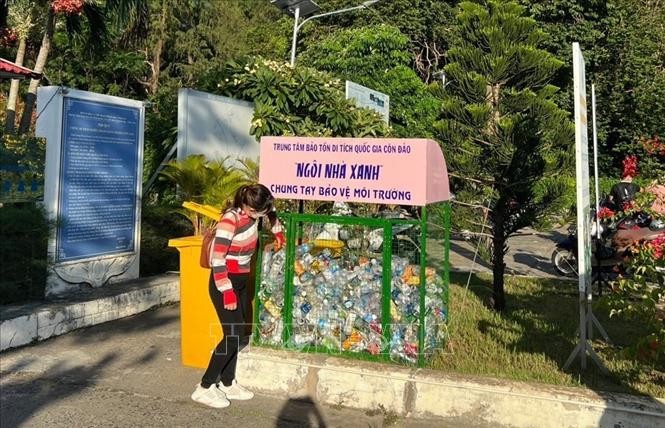(VOVWORLD) - March 30 has been designated as “International Day of Zero Waste” since last year. Many activities to mark the occasion are underway across Vietnam.
 Vietnam celebrates “International Day of Zero Waste” Vietnam celebrates “International Day of Zero Waste” |
International Zero Waste Day calls on all stakeholders, including governments, businesses, and communities to participate in activities to raise awareness about the benefits of attaining zero waste.
To achieve zero waste, Vietnam has implemented a comprehensive, whole-society approach, drawing people from all walks of life, while raising the awareness of manufacturers and consumers about waste issues and encouraging people to adopt an environmentally friendly lifestyle.
Every day Vietnam releases about 60,000 tons of household waste into the environment. According to the Ministry of Natural Resources and Environment, over 70% of this waste is deposited in landfills, of which only about 20% is buried hygienically. Vietnam has set a goal that 90% of household waste must be treated hygienically by 2025.
Domestic enterprises are encouraged to obtain technology ownership rights, establish joint ventures with foreign companies, and ensure capital, equipment capacity, and technology transfer operations. Vietnam has appointed investors to create pilot programs for treating 1,000-2,000 tons of waste per day beginning in one locality and then expanding to others.
Under the Law on Environmental Protection, by the end of this year, domestic solid waste generated from households and individuals must be classified. Otherwise administrative penalties will be imposed.
Hoang Van Thuc, Director of the Department of Environmental Pollution Control under the Ministry of Natural Resources and Environment, said: “To form the habit of classifying waste, we must follow a roadmap based on actual local conditions. We need to be resolute and issue regulations and instructions. In the coming time, the Ministry of Natural Resources and Environment will send working delegations to localities to inspect, guide and support them in classifying household solid waste. We will also strengthen communication.”
Vietnam has determined that zero waste is an important piece of the puzzle in responding to climate change. The Government has adopted a National Action Plan on implementing a circular economy, reusing, recycling and treating 85% of plastic waste and reducing plastic waste released to the sea by 50%. Vietnam has developed a National Action Program on ocean plastic waste management with the goal of reducing it by 75% by 2030.